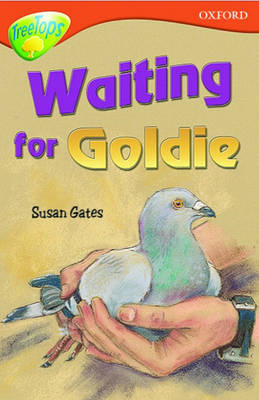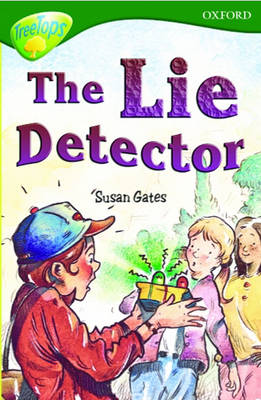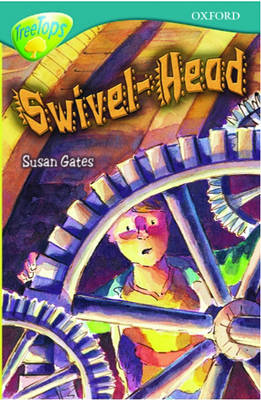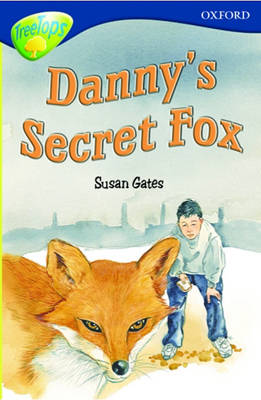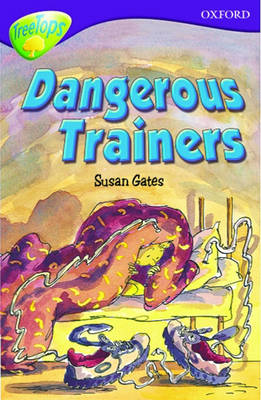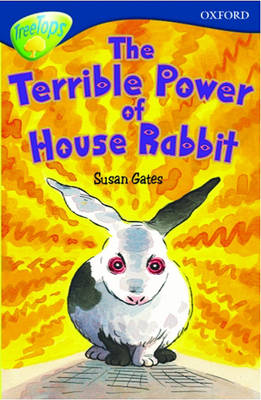Oxford Reading Tree
6 total works
"Treetops" is the "Oxford Reading Tree" series of fiction with built-in progression for pupils aged seven to 11. Specially written for children who need the support of carefully monitored language levels, this story, entitled "Waiting for Goldie", seeks to be accessible, motivating and humorous. The series is organized into "Oxford Reading Tree" stages (from stage ten to stage 14), with each stage introducing more complex narrative forms, including: flashbacks and changes in viewpoint; descriptive writing; extended reading vocabulary; and more pages, more text, and fewer illustrations. Each stage is supported by the "Teacher's Guide", which offers guidance on using "Treetops" to assess children's reading ability, and includes a variety of activities, many on photocopiable sheets.
"Treetops" is the "Oxford Reading Tree" series of fiction with built-in progression for pupils aged seven to 11. Specially written for children who need the support of carefully monitored language levels, the stories are accessible, motivating, and humorous. The series is organized into "Oxford Reading Tree" stages (from stage ten to stage 14), with each stage introducing more complex narrative forms, including: flashbacks and changes in viewpoint; descriptive writing; extended reading vocabulary; and more pages, more text, and fewer illustrations. Each stage is supported by a teacher's guide, which offers guidance on using "Treetops" to assess children's reading ability, and includes a variety of activities (comprehension, writing for a range of audiences and in different forms, discussion and role play) many on photocopiable sheets.
A further 12 Treetops titles in Oxford Reading Tree's series of fiction with built-in progression for pupils aged 7 to 11. Specially written for children who need the support of carefully monitored language levels, the stories are accessible, motivating, and humorous. The series is organized into Oxford Reading Tree stages (from Stage 10 to Stage 16), with each stage introducing more complex narrative forms, including flashbacks and changes in viewpoint; descriptive writing; extended reading vocabulary; and more pages, more text, and fewer illustrations. Pack E features six new stories at Stage 15, and six stories at the new Stage 16. The Stage 16 stories are real children's novels with an increased level of challenge, up to 144 pages in length.
This work offers a further 24 "Treetops" titles in "Oxford Reading Tree's" series of fiction with built-in progression for pupils aged 7 to 11. Specially written for children who need the support of carefully monitored language levels, the stories are accessible, motivating, and humorous. The series is organized into Oxford Reading Tree stages (from Stage 10 to Stage 14), with each stage introducing more complex narrative forms, extended reading vocabulary, and more text per page. Each stage is supported by the "Teacher's Guide", which offers guidance on using "Treetops" to assess children's reading ability, and includes a variety of activities, many on photocopiable sheets.
Entitled "Danagerous Trainers", this text is part of the "Treetops" component of the "Oxford Reading Tree" series of fiction, with built-in progression for pupils aged seven to 11. Specially written for children who need the support of carefully monitored language levels, the stories are accessible, motivating, and humorous. The series is organized into "Oxford Reading Tree" stages (from stage ten to stage 14), with each stage introducing more complex narrative forms, including: flashbacks and changes in viewpoint; descriptive writing; extended reading vocabulary; and more pages, more text, and fewer illustrations. Each stage is supported by the "Teacher's Guide", which offers guidance on using "Treetops" to assess children's reading ability, and includes a variety of activities many on photocopiable sheets.
Oxford Reading Tree: Stage 14: TreeTops: The Terrible Power of House Rabbit
by Susan P. Gates
Published 25 March 1999
These are further 24 "Treetops" titles in "Oxford Reading Tree"'s series of fiction with built-in progression for pupils aged 7 to 11. Specially written for children who need the support of carefully monitored language levels, the stories are accessible, motivating, and humorous. The series is organized into "Oxford Reading Tree" stages (from Stage 10 to Stage 15), with each stage introducing more complex narrative forms, including flashbacks and changes in viewpoint; descriptive writing; extended reading vocabulary; and more pages, more text, and fewer illustrations. Each stage is supported by the "Teacher's Guide", which offers guidance on using "Treetops" within the framework of the National Literacy Strategy and includes activities on photocopiable sheets.
